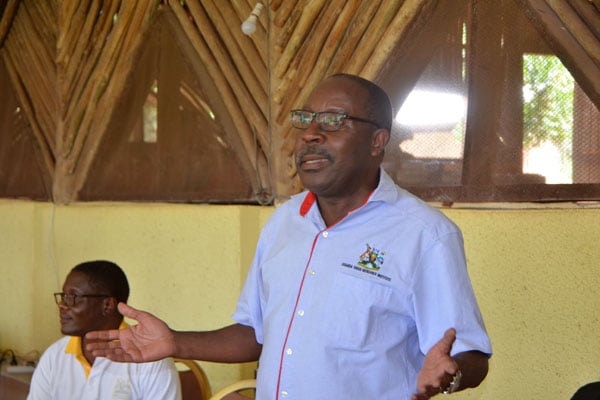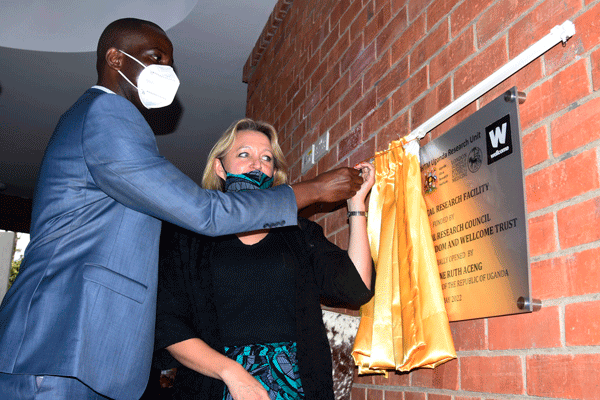Genetically modified mosquitoes will be ready by 2033 - scientists

Dr Tom Lutalo Assistant director for Uganda Virus Research Institute addresses journalists and researchers during a training in Kalangala District on October 6, 2023. Photo/David Sekayinga
What you need to know:
- Researchers want to breed mosquitoes that produce only males or males that are infertile.
The Uganda Virus Research Institute (UVRI) has announced that genetically modified mosquitoes will be ready within a decade.
Gene-drive mosquitoes are among the anti-malarial strategies the government under the Africa Target Malaria project has embarked on since 2016, to reduce the number of malaria deaths in the country.
“If the non -Gene-drive (sterilised) mosquitoes respond positively at every stage, we shall possibly be able to have the Gene-drives 10 years from now,” Dr Jonathan Kayondo, one of the researchers, made the revelation during an anti-malarial training for journalists in Kalangala District last week.
The one-day training was intended to close information gaps in the project.
Dr Kayondo said every level of research will help in information flow, especially in places where research is conducted like the island of Jaana in Bubeke Sub-county in Kalangala District and Nsazi Island in Koome Sub-county, Mukono District. The two islands have high malaria cases.
He added that researchers are yet to receive some Ugandan mosquito species whose genes have been engineered at a laboratory in the USA for trial lease.
“We are currently looking at developing sterile male mosquitoes that wouldn’t be capable of fertilising the female anopheles mosquitoes that spread malaria before introducing gene-drives to the community,” he said.
Dr Kayondo added:“The intention is to reduce the number of female malaria-spreading mosquitoes in the population by having them also lay fewer female mosquito eggs compared to the 300 eggs that a natural female anopheles mosquito lays.”
Scientists hope to enable the modified mosquitoes to carry the gene of maintaining anopheles mosquitoes to produce female ones from one generation to another.
Currently, scientists are collecting mosquito species across the country, which are kept in the insectarium at UVRI head offices in Entebbe, Waksio District. They are studying their behaviour in regard to biting humans as well as mating.
The Ugandan team of researchers is working jointly with scientists from Burkina Faso, Mali and Ghana.
Mr Kayondo Mutebi, the vector control personnel and the focal person of the Africa Target Malaria Project in Kalangala, said other anti-malarial methods like sleeping in treated mosquito nets shall be used concurrently with the genetically modified mosquitoes.
“We can’t do away with other methods we have been using since the natural anopheles mosquitoes will be in co-existence with the modified ones,” he said.
Dr Tom Lutalo, the assistant director of UVRI, said the government and its institutions are closely monitoring the research work to ensure that scientists follow the right procedures without flouting the technological laws of Uganda.
Scientists are looking at the viability of leasing large numbers of genetically modified mosquitoes into the wild to influence future generations of those causing malaria.
Malaria cases
World Health Organisation says about 200 million die of malaria annually world wide. 90 percent of these deaths are recorded in Africa.
In Uganda, available records at the Ministry of Health show that of 100 people who visit health facilities nationally, 40 are diagnosed with malaria. Among the 40, 20 die of the same disease, and malaria cases in Kalangala District are expected to be higher, but few are recorded due to poor health seeking behaviour.




